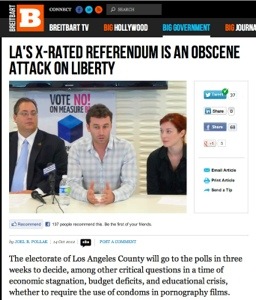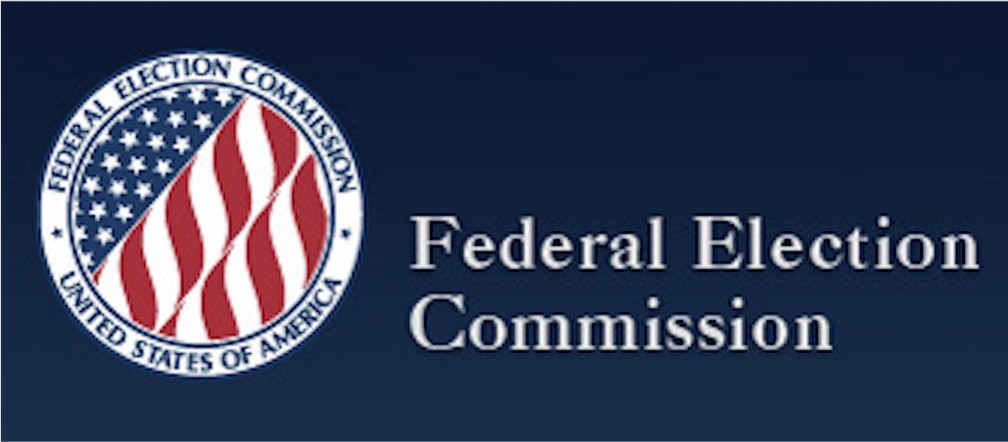The electorate of Los Angeles County will go to the polls in three weeks to decide, among other critical questions in a time of economic stagnation, budget deficits, and educational crisis, whether to require the use of condoms in pornography films.
Ballot Measure X–excuse me, B–reads, in part: “The measure would require the use of condoms for all acts of anal or vaginal sex during the production of adult films.”
Thank goodness the voting age is 18.
The electorate of Los Angeles County will go to the polls in three weeks to decide, among other critical questions in a time of economic stagnation, budget deficits, and educational crisis, whether to require the use of condoms in pornography films.
Ballot Measure X–excuse me, B–reads, in part: “The measure would require the use of condoms for all acts of anal or vaginal sex during the production of adult films.”
Thank goodness the voting age is 18.
Measure B appears on the November ballot thanks to the AIDS Healthcare Foundation, and proponents defend it as a “vote to safeguard public health and for workplace protection.”
The measure would apparently require “on-set inspections.” No doubt LA’s bureaucrats are already lining up for that assignment–but it’s unlikely there will be much left to inspect if Measure B passes.
Love it or loathe it, the U.S. pornography industry is largely based in LA’s San Fernando Valley. Lately, the multi-billion dollar industry has been struggling, and Measure B would likely push it out of California, to other states or Canada.
More jobs destroyed, more tax revenue lost–and yes, perhaps, a few infections prevented, though the industry says it is good at policing itself. And those who join it know what they are (ahem) getting into.
More is at stake in Measure B than economic damage. The greater price is liberty itself.
You don’t have to like or care about pornography to understand that there is something absurd about the government–or even the majority of citizens–deciding that when consenting adults engage in otherwise legal sexual expression, they have to use a particular form of contraception, subject to supervision by the Department of Public Health.
Recall the uproar during the Republican primary earlier this year over the phony issue of contraception. The mainstream media threw a fit over the constitutional question of whether states had the power to regulate contraception, and the left attacked GOP candidates for allegedly wanting to ban it.
It turns out that contraception is an election issue, after all–for the left: LA’s liberal activists want to impose its use.
Because many people disapprove of pornography, and approve of responsible condom use, Measure B is likely to pass. Indeed, a poll commissioned by Measure B’s backers suggested that 63% of likely voters supported it.
Perhaps it serves the industry right. It backs President Barack Obama by a 5-to-1 margin, according to one recent poll. There are, evidently, a few libertarians in the bunch, but most appear to be lockstep liberals. No doubt, the industry doesn’t hope for favors from the GOP–whose platform supports anti-obscenity laws–but its Democratic allies are busy intervening in its business.
And the reason is not just public health.
Pornography does not sell sex; it sells fantasy. And the activist community wants consumers to fantasize about safe sex.
The activists don’t just want to control what adult performers do, but what viewers want and imagine and desire.
As Tocqueville warned: “liberty is less necessary in great matters than in tiny ones.”
Over several decades, the noble intentions of activists have led California into its present fiscal and political paralysis, in which alternatives to big government are almost unthinkable.
Measure B will help few, but harms the liberty of all by inviting the tyranny of the majority to govern the intimate imagination.
That is more obscene than anything being filmed in the San Fernando Valley.






